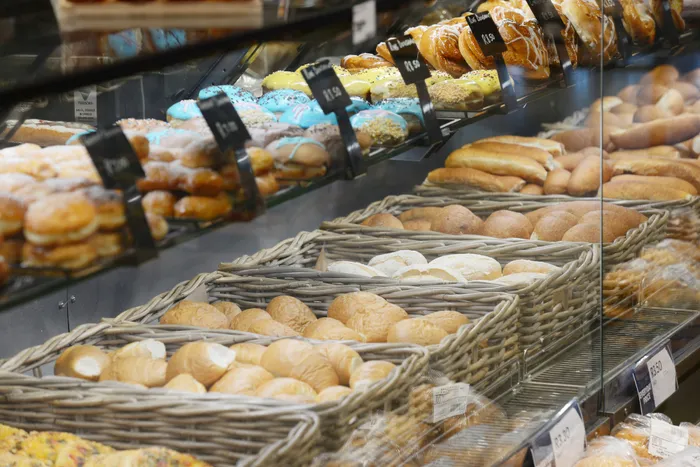Rising food prices in South Africa: April 2025 Household Affordability Index

Pietermaritzburg Economic Justice and Dignity Group (PMBEJD) said that the April 2025 Household Affordability Index indicated that the average cost of the Household Food Basket increased by R90,94 (1.7%), from R5 329,36 in March 2025 to R5 420,30 in April 2025.
Image: Armand Hough: Independent Newspapers
Pietermaritzburg Economic Justice and Dignity Group (PMBEJD) said that the April 2025 Household Affordability Index indicated that the average cost of the Household Food Basket increased by R90,94 (1.7%), from R5 329,36 in March 2025 to R5 420,30 in April 2025. Civil society organisations have raised concerns about the rising cost of foods.
Mervyn Abrahams, PMBEJD programme co-ordinator, said that in April 2025: The average cost of the Household Food Basket is R5 420,30. “Year-on-year: The average cost of the Household Food Basket increased by R83,99 (1,6%), from R5 336,31 in April 2024 to R5 420,30 in April 2025. Food pricing trends in April 2025. In April, of the 44 foods tracked in the basket: 24 foods increased in price, and 20 foods decreased in price.”
Abrahams added that foods in the basket which increased in price in April 2025 by 5% or more, include: potatoes (6%), onions (11%), beef (7%), fish (7%), tomatoes (26%), carrots (20%), spinach (7%), cabbage (6%), green pepper (7%), bananas (7%), and oranges (18%). “Foods in the basket which increased in price in April 2025 by 2% or more, include: maize meal (2%), full cream milk (2%), beef tripe (2%), cremora (3%), apricot jam (4%), and brown bread (2%).”
Abrahams said that they have noticed increases in the food baskets across major cities in the month of April. “In April 2025, food baskets in Joburg, Durban, Cape Town, Springbok and Pietermaritzburg increased in price. The Joburg basket increased by R77,58 (1,4%) month-on-month, and decreased by R52,72 (-0,9%) year-on-year, to R5 559,46 in April 2025. The Durban basket increased by R157,64 (3,0%) month-on-month, and increased by R168,23 (3,2%) year-on-year, to R5 425,23 in April 2025.”
Abrahams added that the Cape Town basket increased by R11,25 (0,2%) month-on-month, and increased by R129,80 (2,5%) year-on-year, to R5 316,56 in April 2025. “The Springbok basket increased by R242,93 (4,3%) month-on-month, and increased by R186,68 (3,3%) year-on-year, to R5 908,84 in April 2025. The Maritzburg basket increased by R138,46 (2,8%) month-on-month, and decreased by R15,84 (-0,3%) year-on-year, to R5 044,47 in April 2025.”
Abrahams said that Statistics South Africa’s latest Consumer Price Index for March 2025 shows that headline inflation was 2,7%, and for the lowest expenditure quintiles 1-3 it is 4,2%, 3,7%, and 3,3% respectively. “CPI food inflation was 2,2% (for CPI Food & NAB it was 2,7%. STATS SA’s Producer Price Index for March 2025 shows agriculture was 2,4%, of which, products of crops and horticulture was 9,2%, and live animals and animal products was -7.1%.”
Evashnee Naidu, regional manager for Black Sash in KwaZulu-Natal, said that the organisation continues to advocate for an increase in the value of social grants across the board to the extent that these increases are able to cushion the ever-increasing blow of food price increases. “Whilst Black Sash welcomes the fact that there will be no VAT increase in 2025, which would have had a significant impact on poorer households, South Africa continues to see food prices increase. The Black Sash amplifies its call for permanent Basic Income Support to provide additional support to individuals and households.”
Aliya Chikte, project officer at the Alternative Information and Development Centre (AIDC), said that although food inflation is slowing down, the average cost of a household food basket is unaffordable in a context of mass unemployment and deep impoverishment. “Even though more than half the population lives in poverty, the high rate of exclusion from the Social Relief of Distress leaves millions without the support needed to meet their immediate nutritional needs. As a new fiscal framework is tabled, we urge the government to protect and enhance social protection.”
Siyanda Baduza, a researcher with the Basic Income Project at the Institute for Economic Justice (IEJ), said that for the millions of grant recipients, the increase in food prices will continue to make life more difficult, as it does everyone else, even with the VAT reversal. “The value of the child support grant and SRD grants remain far below adequate levels. Both lie below the food poverty line, now at R796, and also below all estimates of the cost to feed a child a nutritional diet.”
BUSINESS REPORT